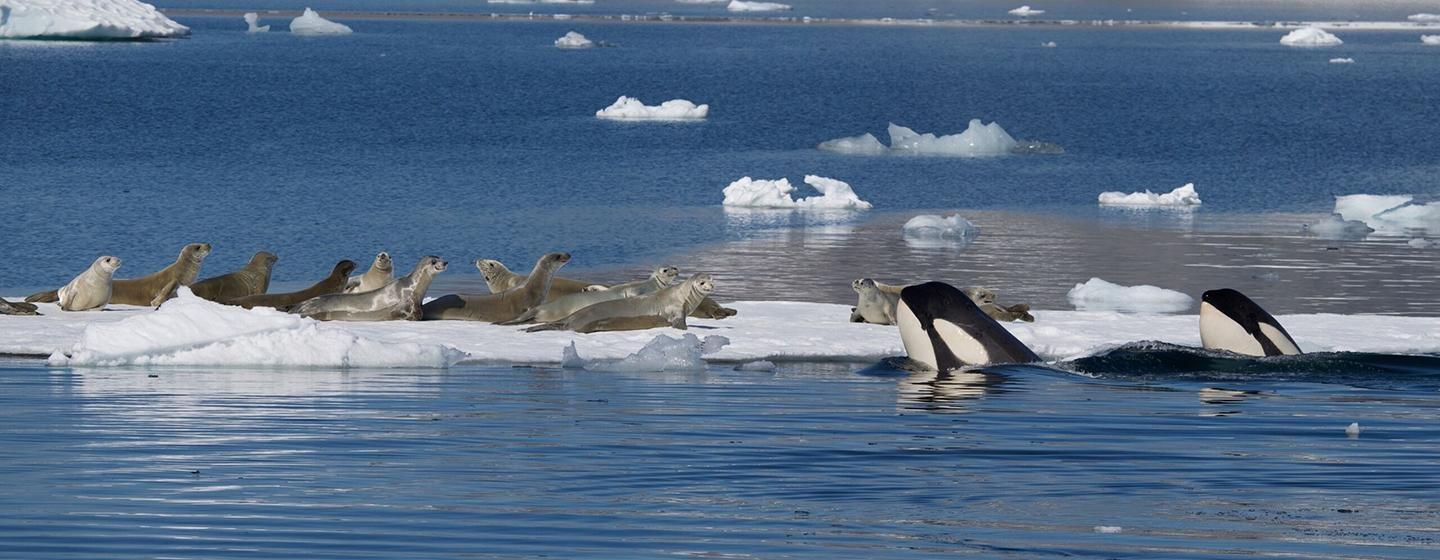Nature, Expedition Killer Whale
PBS Western Reserve (WNEO 45.1 / WEAO 49.1):
Wednesday, Feb. 12, at 9 PM
Thursday, Feb. 13, at 1 AM
Monday, Feb. 17, at 5 PM
In a remote corner of Antarctica, a group of killer whales capture their prey in the most extraordinary fashion. Swimming together, they create waves so powerful and accurate, they can wash a seal right off a piece of floating ice – some of the most sophisticated behavior in the animal kingdom. A team of scientists and filmmakers try to advance our understanding of these compelling animals.
The hunting technique of pack-ice killer whales has intrigued scientists for decades, and there is still so much unknown about the species. Each scientist on the expedition hopes to discover new truths about these whales. For whale biologist Dr. Leigh Hickmott, the mission becomes personal when he searches for his favorite killer whale, a powerful female that holds her family together through decades of experience and supreme intelligence. Another scientist, Jessica Farrer, Research Director at The Whale Museum, has an unusual way of studying marine mammals – she collects their poop, from which she can discern information about their health and environment. Her dream is to collect the poop of a pack-ice killer whale, something never done before.
The film team deploys drones to get an aerial perspective of the whales as well as gyro-stabilized lenses mounted on small boats – all adding new insights into how these extraordinary animals hunt and how they live as families. The team documents something not seen before – an hours-long teaching session, where adult females demonstrate hunting skills to their young. In another first, the team records the calls of the killer whales as they search for prey, coordinate their wave-making, and share their meal.



